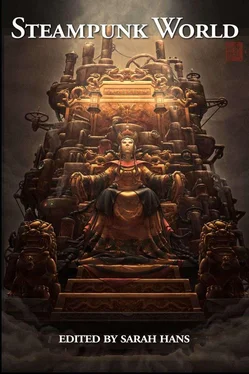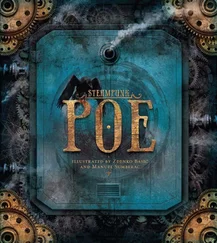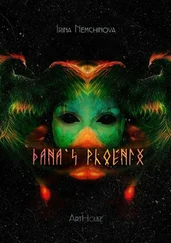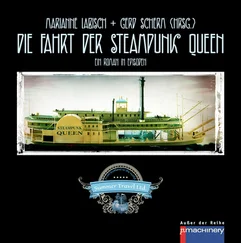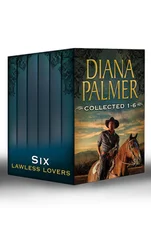As Elena trudged along the road towards the boxcar, the blackened gold tower of the horseshoe-shaped house loomed on the other side of the hill. She clenched her teeth, remembered Mother’s peppermint perfume, Father playing the piano, his epaulettes quivering on his shoulders. They were nothing but fading sepia photographs now, and she and Nina, the last Trubetskoys, were countesses only of an abandoned wooden boxcar hidden on the outskirts of what had once been their estate. As dark fell and the boxcar loomed behind the copse of trees, Elena’s thoughts crashed over and over into the images of the life she was supposed to have: seasons in Petrograd with daring affairs, a year traveling the Continent, Mother and Father growing old in the house and Nina living in their sky-blue palace by the canal in Petrograd, filling the rooms with lilies and books of poetry.
We will never have any of that, now , Elena thought as she yanked open the boxcar door. I’m the woman who uses her opera glasses accoutrement to beat peasants instead of to watch the Ballets Russes.
“Oh thank goodness, you’ve returned,” Nina said. Several dark-stained handkerchiefs wilted on the sawdust-covered floor around her feet. She was draped in a fur coat, the only one that Elena hadn’t nailed up around the boxcar windows for insulation. A book—one of the ones their great-grandfather had had signed by Pushkin—dangled from her fingers. “Were you—”
Elena held up the bottle of oil, and Nina clapped.
“I smashed up one of them , too.” Elena peeled off her gloves, scooped a set of pliers and a wrench out of a carpetbag. “I hope wolves eat him.”
“Elena, that’s not very—”
“Hush, don’t become agitated. It’ll only make your cough worse. Now hold still.”
Nina sighed and hunched over the back of her chair. Elena peeled down her sister’s dress to reveal the brass door fitted into the flesh between her shoulderblades.
“I despise this part,” Nina whispered. “I hate when—”
Nina jerked up, barking out a cough that bounced through the boxcar and shuddered her body. She grappled for a handkerchief, her cheeks puffed out and darkness filled the white cloth.
“All right, you’re all right.” Elena’s head swam as she watched Nina cough up blood. She hated that Nina, who had once curled beneath blankets by fat radiators, now had to live in this drafty boxcar, her cough wracking her body whenever they ran out of oil.
After the coughs subsided, Elena unscrewed the brass plate on Nina’s back, lifted it up with the creaking of rusty hinges. The smell of old metal and pus drifted through the boxcar.
“This isn’t much oil.” Elena shook the bottle, then positioned the spigot over the gaping hole that revealed the rusted swell of Nina’s brass lungs. “And it’s not good oil, either. It’s just gun oil, not even accoutrement oil. Not worth giving up jewels.”
“You stole—”
“What else could I do?” Elena shook the bottle and oil dripped into the seam between the lungs. “It’s all corroded back here.”
After she finished Nina’s lungs, Elena oiled the creaky scales on Nina’s arms. She cleaned the blood off her opera glasses, then oiled her feathers and the crease between her back and tail. She flexed her tail and at last the skin that anchored it to her back didn’t pull painfully tight.
She put her feet on the woodstove while Nina curled in her fur and they shared porcelain cups of tea and a chunk of rusk.
“This is a far cry from picnics in the Crimea,” Elena said.
“Oh, picnics when you would pilfer jam from the—”
“From that old cook who despised me? You were self-righteous about stealing even then, dearest. Yet you always ate the jam, didn’t you?”
“I only ate the jam because you forced me to eat the jam.” Nina was laughing, and already her cheeks flushed healthy in the woodstove light. “You always forced me to eat your pilfered jam and to play the princess—”
“Because you wanted to play the princess. And I wanted to play the knight.”
“Until you fell running and skinned your knees and cried for Mother, because you’ve always pretended to be tougher than you are.”
Elena jabbed her sister in the ribs, but warmth and comfort tugged at her. At least Nina was here, Nina had survived, and for now Nina’s cough had subsided and she was laughing.
But then Elena reminded herself of how much they’d lost, of how she must already start thinking about where their next bottle of oil might come from, and how her anger burned in her chest, an eternal flame.
Within a week, Elena had shaken the last drop of oil onto Nina’s lungs. Nina grew pale again, and barely slept; Elena woke sometimes in the night to the sounds of Nina coughing as she clattered around the boxcar.
As Elena wrapped herself in her coat and pulled her mink hat over her ears, Nina said, “I would like to come too.”
Nina hadn’t gone to Novgorod since the one week in autumn when Elena had been deliriously ill with influenza, and yet every time Elena ventured to the city Nina asked to accompany her. “Whyever would you want to come?”
“I…” Nina’s cheeks flushed. “I miss the fresh air, and the look of the sunlight on the—”
“It’s too dangerous.”
“Please.” Nina widened her cerulean eyes and pouted. “I don’t want to perish never again seeing the city.”
“Dearest, you are dramatic to beat the band,” Elena said, her stomach sinking. “Very well. Wear the fur-lined coat.”
Elena and Nina crunched through the deep snow around the boxcar, out from under the copse of bent bare trees, then onto the southern road towards Novgorod. The sky was pale blue like the tulle on a ballerina’s skirt, the air deadly cold on the thin strip of Elena’s skin between her kid glove and her coat sleeve.
As the brick wall and squat guard towers of the kremlin loomed before them, Elena tugged Nina’s coat sleeve down to hide her scales. “Keep these hidden,” she said. “And if anyone gives us trouble, I’ll—”
Her boot crunched against something stiff. She bent and pulled a piece of paper from beneath her boot heel. She shook shards of ice from the paper.
It was a flyer, warning the citizens of Novgorod that a noblewoman with accoutrement had attacked a brave defender of the Revolution, and that anyone who sheltered her would be executed.
The flyer showed an etching of a woman with black-buttoned boots and a coat billowing over a brass bird’s tail.
The flyer shook in Elena’s hand. “How dare they.” She wished she’d killed that man. She should have killed him. She could have done it, no matter what Nina thought about her toughness.
Nina began coughing, her arms pressed against her ribs as she twisted into the hacks that convulsed her body. Elena dug her boot-toe into the frozen snow, waited until Nina’s cough subsided.
“Shall we go home?” Nina hiccupped the words.
“We can’t. We need the oil. Come along. We’ll be careful.”
Nina and Elena picked their way towards the kremlin. Between the guard towers, two men barred the gate, both wearing Red Army uniforms.
The flyer quaked in Elena’s hand. She had always seen policemen, not soldiers, guarding the gate.
“Papers,” said the older of the two soldiers, his face twisting around the words.
The younger man cocked his head at them—at Nina. Of course . Elena had once garnered her share of attention—glasses of champagne and trysts in the greenhouse—but Nina was the kind of woman men wrote sonnets about. This particular admirer had a face still round with youth, but he bore a scar beneath one eye.
Elena hated the way he gazed at her sister.
Читать дальше
